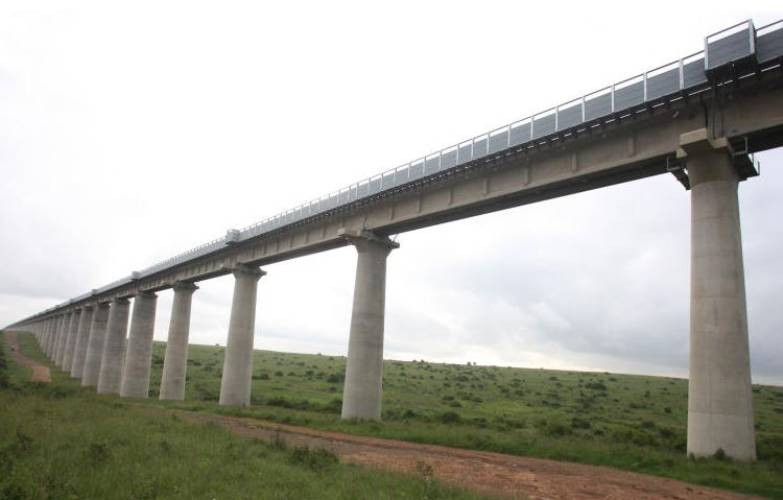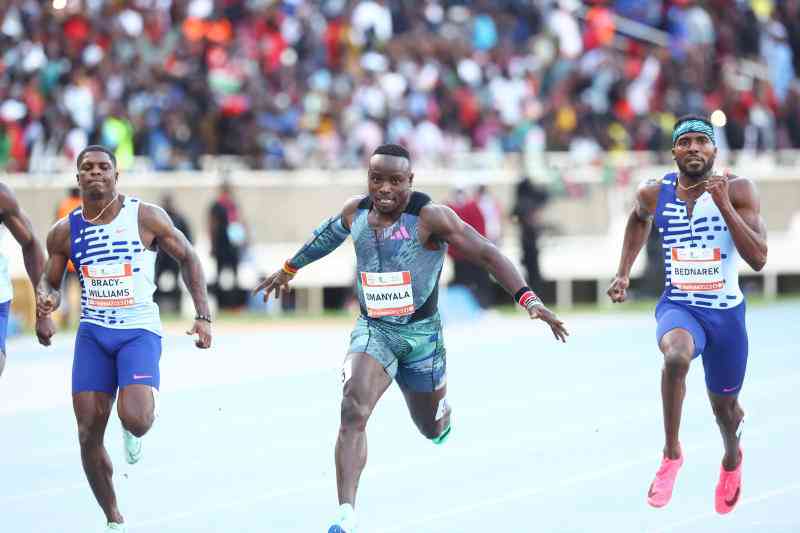The Standard Gauge Railway (SGR) is one of the largest infrastructure projects undertaken in the region. The first phase of the project between Mombasa and Nairobi is expected to be completed by July 2017. Business Beat sought out Steven Zhao, the head of external relations and co-operation at China Road and Bridge Corporation (CRBC), the project’s contractors, for a status report.
The Government has set tight deadlines for the SGR project. Are you on schedule?
Since the start of the SGR project in December 2014, significant progress has been made. By the end of April this year, we had completed most of the civil works. Next, we will be embarking on track laying, beam erection, construction of railway stations, installation of electricity, and finally, the communications and signal system.
Up to now, 252 kilometres of track have been laid and 634 T-beams erected, accounting for 40.97 per cent of the total quantity. In general terms, we can report about 60.9 per cent of the entire SGR project is complete, ahead of schedule. It’s on course for completion in 2017.
What are some of the challenges you have encountered?
Construction has been progressing smoothly so far, with no significant challenges.
Surely the project has not been without challenges, especially when it comes to industrial action?
True, we acknowledge that on several occasions, our employees have gone on strike in pursuance of some of their concerns, such as salary increments and worker welfare. We continuously engage with one of the biggest labour unions in Kenya to provide a link between management and employees, and further seek advice on general employee relations, welfare and rewards in accordance with the Employment Act and Labour Relations Act.
One of the main provisions of your contract with the Government on this project is the utilisation of local content in inputs. Are you compliant?
CRBC has taken a proactive approach on the issue of local content. At every stage, we engage local companies and select outstanding suppliers and sub-contractors as our partners.
To date, we have material procurement co-operations with 900 major local suppliers, and worked with more than 200 sub-contractors. Their products and services cover many aspects of the project, including supply of construction materials, equipment leasing, sub-contracting and consulting services. Local suppliers and sub-contractors are fully involved in the project in a win-win proposition that will be scaled up as the project progresses.
Achieving gender parity remains a key challenge in the Kenyan construction industry. Are you addressing this?
We believe in the empowerment of women, and the SGR project has ensured it meets its gender balance obligations by encouraging the participation of women. A lot of employees working in the project are women, straddling all cadres from office clerks and machine operators to sub-contractors.
The SGR project has often been touted by its promoters, especially within Government, as a generator of jobs, direct and indirect. How have you fared on this front?
By the end of April 2016, the project had created jobs for more than 38,000 people. This number comprises 19,858 Kenyans, 6,060 former employees, 6,430 employees of local sub-contractors, 3,886 employees of local suppliers and 2,424 security workers.
Stay informed. Subscribe to our newsletter
A majority of the 2,071 Chinese employees working on the project are in managerial and engineering positions. Our policy is to employ Kenyans as long as the expertise needed is available locally. Currently, the ratio of Chinese to Kenyan employees on the project is 1:10.
In your current form, you are one of the biggest employers in Kenya today. How do you ensure you get utmost value out of this diverse workforce?
For starters, CRBC pays its workers above what the Government stipulates. We have also initiated merit and performance-based employee reward schemes. To help employees in times of misfortune, we set up a Kencare Fund, financed by CRBC. Every site office takes full advantage of the fund to help employees and their families facing difficulties.
By the time the project is over, it is hoped that it will have helped train and equip a new generation of Kenyan workers who can undertake similar projects in the future.
Training is a key component of our mandate and we undertake it at three levels. Firstly, we carry out technique training for local employees. This equips them with the capacity required at their level, and enables them master the techniques and operational specifications of each relevant work procedure.
Secondly, we train technical personnel on the skills needed in railway operations.
Thirdly, we intend to promote the creation of a joint institute between Chinese and Kenyan colleges that can identify and nurture railway engineering and management talent.
[email protected]
 The Standard Group Plc is a
multi-media organization with investments in media platforms spanning newspaper
print operations, television, radio broadcasting, digital and online services. The
Standard Group is recognized as a leading multi-media house in Kenya with a key
influence in matters of national and international interest.
The Standard Group Plc is a
multi-media organization with investments in media platforms spanning newspaper
print operations, television, radio broadcasting, digital and online services. The
Standard Group is recognized as a leading multi-media house in Kenya with a key
influence in matters of national and international interest.
 The Standard Group Plc is a
multi-media organization with investments in media platforms spanning newspaper
print operations, television, radio broadcasting, digital and online services. The
Standard Group is recognized as a leading multi-media house in Kenya with a key
influence in matters of national and international interest.
The Standard Group Plc is a
multi-media organization with investments in media platforms spanning newspaper
print operations, television, radio broadcasting, digital and online services. The
Standard Group is recognized as a leading multi-media house in Kenya with a key
influence in matters of national and international interest.







